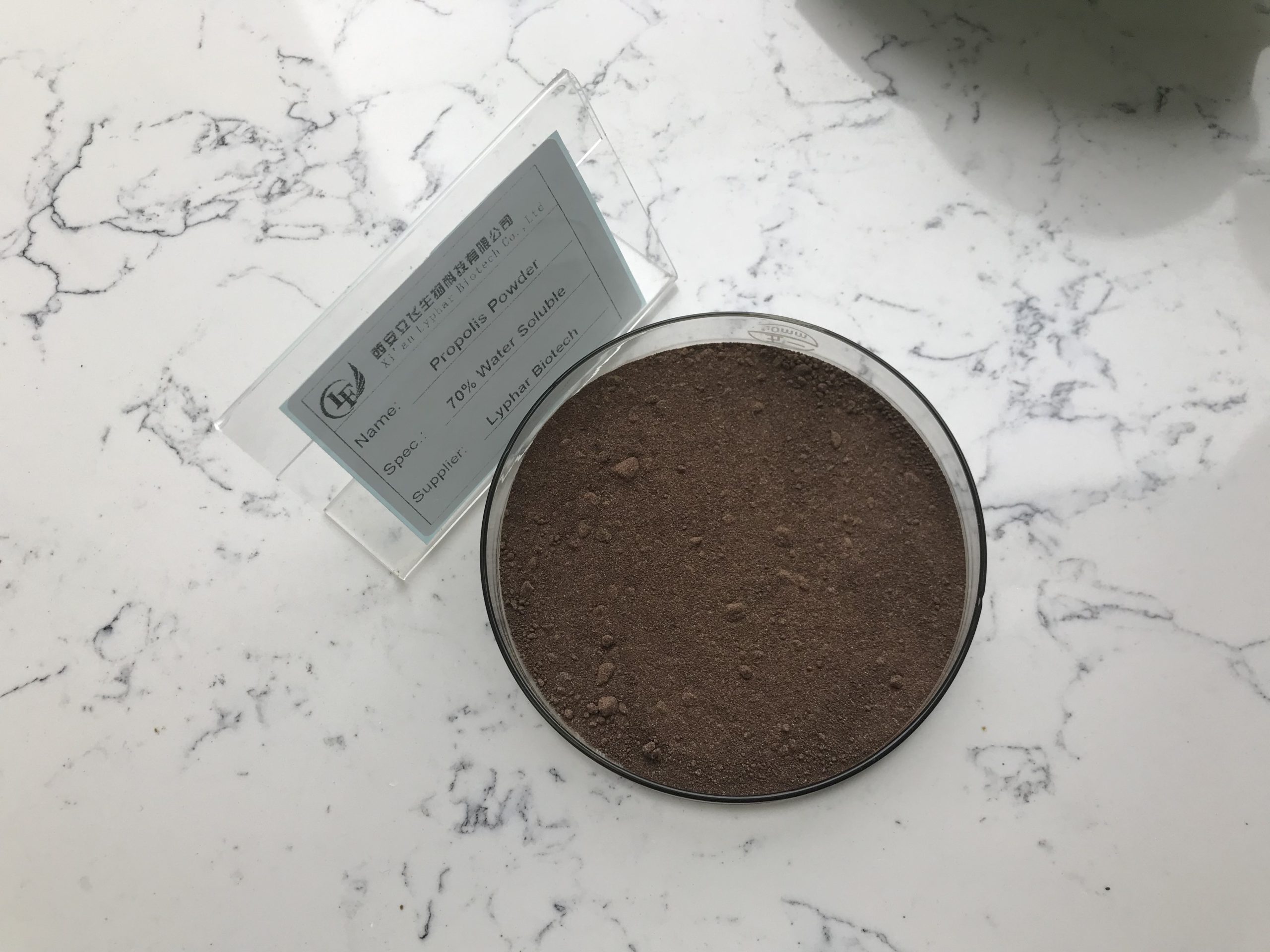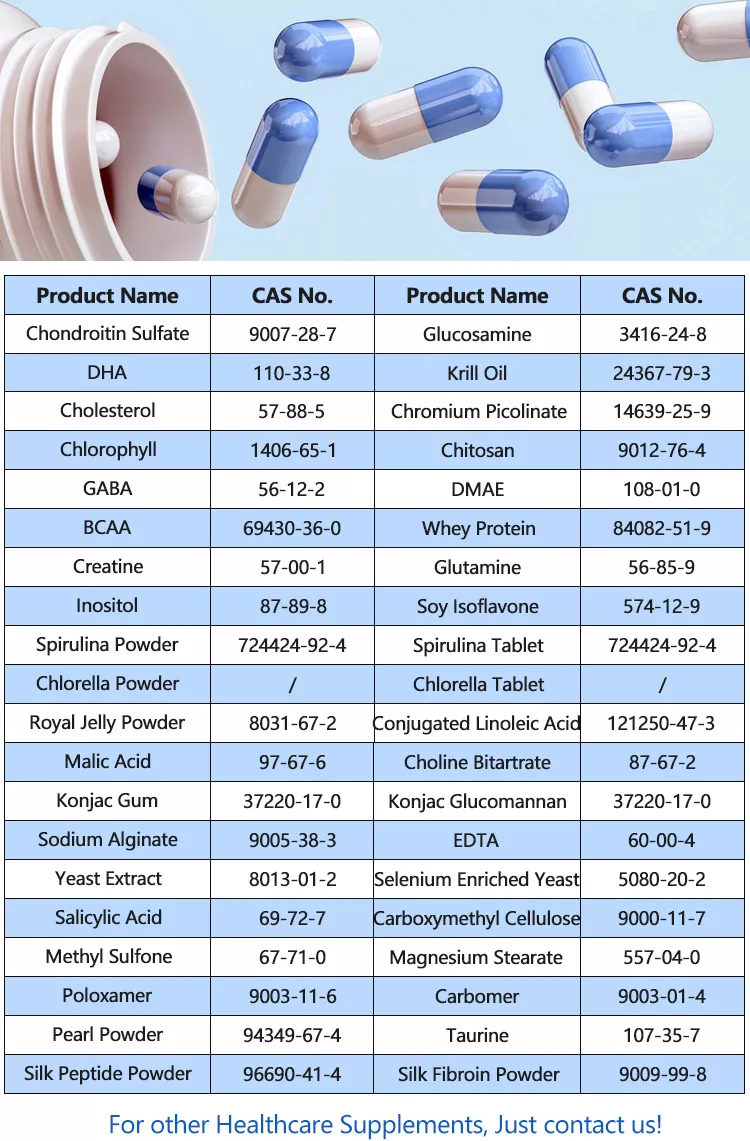Propolis powder is a natural substance that honeybees collect from tree buds, sap flows, or other botanical sources. It has been used for its potential health benefits for centuries. To use propolis powder for the best results, here are some tips:
Choose a High-Quality Source: Ensure that you purchase high-quality propolis powder from a reputable supplier. Look for products that are pure and free from contaminants.
Dosage: The recommended dosage can vary depending on the product and your specific needs. Typically, a daily dose of 100-300mg is suggested for general health support. However, it’s best to follow the dosage instructions provided by the manufacturer.
Mix with Food or Beverages: Propolis powder can be mixed with various foods and beverages to make it more palatable. You can add it to a spoonful of honey, sprinkle it on yogurt, mix it with warm water or tea, or even blend it into smoothies.
Consistency: To experience the potential benefits of propolis, it’s important to use it regularly. Consistency is key, as the effects may accumulate over time.
Oral Health: Some people use propolis powder as a natural remedy for oral health. You can sprinkle it on your toothbrush along with toothpaste or mix it with a small amount of water to create a mouthwash. However, make sure you don’t have an allergy to bee products before using it in your mouth.
Skin Care: Propolis can also be used topically. You can create a skin ointment by mixing propolis powder with a carrier oil, such as coconut oil or olive oil. Apply it to the skin as needed.

Allergies: If you have a known allergy to bee products, it’s essential to avoid propolis.
Consult a Healthcare Professional: Before using propolis for specific health concerns, especially if you have underlying medical conditions or are taking medications, consult a healthcare professional. They can provide guidance on the best way to incorporate propolis into your health regimen.
Observe for Side Effects: While propolis is generally considered safe, some individuals may experience allergic reactions or minor side effects. If you notice any adverse reactions, discontinue use and seek medical advice.
Store Properly: Store propolis powder in a cool, dark place away from direct sunlight and moisture to preserve its quality and effectiveness.
Remember that propolis is a natural product, and its benefits may vary from person to person. While some people report positive effects on their immune system, skin, and overall well-being, results can differ. If you’re considering propolis for a specific health issue, consult with a healthcare professional for personalized advice.
The origin and properties of Propolis Powder
Propolis powder is a natural resin-like substance collected and used by honeybees to seal and protect their hives. It is derived from various plant sources, and its properties can vary depending on the geographical location, plant species, and the season in which it is harvested. Here are some key points about the origin and properties of propolis powder:
Origin of Propolis Powder:
Beehive Resin: Bees collect propolis primarily from tree buds, sap, and other botanical sources. They use their mandibles and enzymes to process and mix the raw resin with beeswax and other substances to create propolis.
Geographical Variation: The composition and properties of propolis can vary significantly based on the local flora. Different plants and environmental conditions lead to distinct chemical profiles and colors of propolis.
Harvesting: Beekeepers carefully collect propolis from the beehive by scraping it off frames, hives, or other surfaces. The collected resin is then processed and transformed into propolis powder or other products.

Properties of Propolis Powder:
Color and Texture: Propolis can range in color from green and red to brown and black, with dark brown being the most common. It is typically brittle at room temperature and can be crushed or ground into a fine powder.
Chemical Composition: Propolis is a complex mixture of resin, beeswax, essential oils, pollen, and bioactive compounds. It contains various compounds, including flavonoids, phenolic acids, terpenes, and aromatic compounds, which give it its unique properties.
Antibacterial and Antifungal: Propolis is known for its natural antimicrobial properties, which help protect the beehive from pathogens. This makes it a popular ingredient in natural remedies and health products.
Anti-Inflammatory: Propolis has anti-inflammatory properties and can be used topically on the skin or consumed as a supplement to help with various inflammatory conditions.
Antioxidant: The flavonoids and phenolic compounds in propolis act as antioxidants, helping to neutralize harmful free radicals in the body and protect against oxidative stress.
Immune System Support: Propolis is often used as a dietary supplement for its potential to support the immune system and overall health.
Topical Applications: Propolis can be used in various forms, including propolis powder, ointments, creams, and tinctures, for wound healing, skin conditions, and oral health.
Health Benefits: It is believed to have a wide range of potential health benefits, including wound healing, oral health, immune system support, and antioxidant protection. However, scientific research on these benefits is ongoing, and the extent of its efficacy for specific health concerns may vary.
Please note that the properties and benefits of propolis can vary based on its source, quality, and processing methods. If you intend to use propolis for health or cosmetic purposes, it’s advisable to consult with a healthcare professional or a knowledgeable beekeeper to ensure its safe and effective use.
